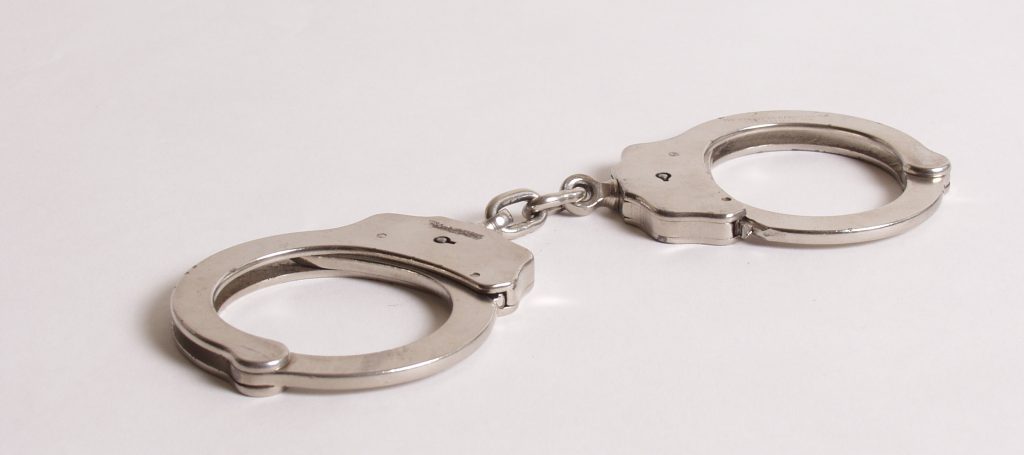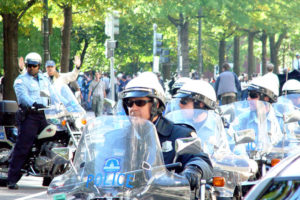Simply put, police officers are only legally allowed to arrest you when they have “probable cause” to show that you have committed an offense.
In order to show probable cause for an arrest, police officers must be able to show that there were objective circumstances and facts that lead them to believe that you had committed the crime. Ultimately, a judge will have the final say when determining whether a police officer had probable cause to arrest you without a warrant, or whether probable cause exists in order to issue an arrest warrant. Since this decision will be rendered by a judge, it is vital that you have a strong criminal defense attorney representing you.
Can I be lawfully arrested, even if I’m innocent?
Yes. This may be hard to believe, but even if you have not committed any offense, the arrest is valid as long as the police officer had probable cause to arrest you.
For example, if the police receive a complaint against you, even if the complainant lied about the incident and you are truly innocent, the police still have probable cause to arrest you even if they later discover the truth. If the police did not have probable cause to arrest you, then you may have been unlawfully arrested.
When can I file a lawsuit against the NYPD?
If you want to file a lawsuit, you should do so before you are convicted of the crime.
After the police arrest you, the Assistant District Attorney (ADA) will review the case against you and decide whether or not to prosecute. If the ADA declines to prosecute, you will not be arraigned. If the ADA decides to go forward with the prosecution, you will be arraigned, and either you will be given the official charges held against you, or the judge will dismiss the case due to a lack of evidence or probable cause. If the case against you goes forward, and you are convicted of the charges held against you, you may lose your right to file a lawsuit against the Police Department. If you are acquitted of the criminal charges, if the ADA declines to prosecute, or if the case is dismissed due to a lack of evidence or probable cause, then you may choose to file a lawsuit against the Police Department.
Do you want to file a lawsuit against the NYPD? We can help.
Contact us today for a free consultation: (646) 742-9800
How do I file a lawsuit against the NYPD?
In order to file a lawsuit, you must file a “notice of claim” with the City of New York within 90 days of when the relevant causes of action “accrue” under the law.
For instance, if you have been falsely arrested on criminal charges and decide to file a claim for malicious prosecution, you have 90 days to file the notice of claim from the time when the criminal charges are dismissed.
In this case, the cause of action “accrues” only after the criminal case has been completed. If you have been the victim of excessive force by the police, however, you have 90 days from the violent encounter with the police to file a notice of claim. Since the time at which your cause of action “accrues” depends on your particular cause of action, it is best to consult with your attorney as to when to file a notice of claim.
The notice of claim will include your name and address, and of the attorney representing you. It will also describe the nature of your claim, detailing what happened, any injuries you suffered, the time and date, and the location. The notice of claim must also specify the kinds of damages that you are seeking.
Depending on the circumstances surrounding your unlawful arrest, you may seek damages for lost wages, damages to your reputation, embarrassment, illness or physical harm incurred during or as a result of the arrest, punitive damages, false imprisonment, excessive force, malicious prosecution, and wrongful conviction.
After your notice of claim has been successfully filed, the City has 30 days to ask you to appear for a 50-h hearing. This is similar to a deposition. A hearing officer will ask you questions regarding your claim and the incident, and you will be required to answer under oath. If you are suing for physical harm incurred during or as a result of your arrest, the City may also require you to submit to a physical examination by a physician on their behalf to determine the extent of any physical injuries.
After this hearing, the City may decide to offer a settlement, or go forward and defend the claim. The statute of limitations to file a lawsuit against the City is one year and 90 days from the incident, or from when the causes of action accrue under law. If the time limit has expired for you to file a notice of claim with the City, or file a lawsuit under state law, you may still be able to file a lawsuit under federal law within three years of the incident.
How do I file a complaint against the NYPD?
Depending on the situation surrounding your arrest, you may decide to file a complaint with the Civilian Complaint Review Board, or CCRB.
If you have experienced police violence or misconduct, you may want to file a complaint with CCRB. The CCRB handles complaints involving excessive use of force, abuse of authority, discourtesy, and offensive language including derogatory or discriminatory remarks. Try to write down anything that you remember about the incident, including the time, date, location, the officer’s name or badge number, the license plate number of the police cruiser, and any identifying features of the officer involved. You can file a complaint with the CCRB up to 18 months after the incident either by phone, online, or in person.
Whatever you decide, it is important to discuss your options with a civil rights or criminal defense lawyer. If you have criminal charges pending against you, filing either a complaint with the CCRB or a notice of claim or lawsuit with the City can have an impact on your criminal case, so it’s best to discuss your options with an experienced professional. In addition, if you are planning on filing a lawsuit, filing a CCRB complaint may affect your lawsuit against the City, so be sure to consult your attorney.
Have you been unlawfully arrested in New York?
Contact us today for a free consultation: (646) 742-9800





You must be logged in to post a comment.